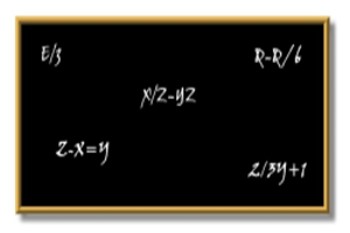 Over the holidays I had the opportunity to read a new book. I enjoyed it thoroughly . . . except for one thing . . .
Over the holidays I had the opportunity to read a new book. I enjoyed it thoroughly . . . except for one thing . . .
I hadn’t gotten very far in the novel before I began to feel like I had read it before. You see, while I hadn’t read that particular story before the novelist was using a formula that she had used in her earlier novels. After reading only a few short chapters, I was able to predict the outcome.
So, what do you think of formula writing?
While it may make the writer’s life easier, it may also lead to boredom for the reader.
“But,” you might say, “I’m a copywriter. I can see where how this discussion impacts novelists, but none of this applies to me.”
That’s where you’d be wrong.
I’m a copywriter too, but I have to admit that I’ve been guilty of using formulas in writing my copy before. I think that it’s only human nature that if we find something that works, we want to stick with it.
However, repeating the same formula over and over doesn’t always make for the best copy. What worked the first time may not work over and over.
What do you think?
Contents (c) Copyright 2009, Laura Spencer. All rights reserved.
Image Source: Laura Spencer

8 responses so far ↓
1 Courtney // Jan 10, 2009 at
I think formulas can be helpful in a way. I use article templates to start the process going sometimes. More often than not, I end up editing the article so significantly that it doesn’t look anything like the template. But using the template gets me over the hump if I’m feeling uninspired.
At the same time, I’m definitely tired of seeing the same copy appear over and over again on sales letters!
2 Laura // Jan 10, 2009 at
Courtney,
I think you hit the nail on the head with this comment.
Formulas can be helpful as a starter or guideline – but we definitely shouldn’t get lazy and let our templates become our end product.
Again, I know I’ve been guilty of sticking to a winning formula – but sometimes it’s best to rethink our strategies.
3 Solomon // Jan 10, 2009 at
I feel the brief of the subject I’m writing about should inspire me. Yes, I do start off on a familiar pattern which I’m doing and read (other’s way of writing) repeatedly, but in the middle it strikes me the real best way to put it. I mean, the more appealing way that is totally different from how we actually thought about it in the first place.
But I’m guilty of going with the templates most often when I know the client won’t pay me much!
4 Laura Spencer // Jan 11, 2009 at
Great response Solomon!
I also think your last sentence illustrates yet another reason to try to get a decent pay rate whenever you can.
5 Mig // Jan 12, 2009 at
I have nothing against formula writing in sales papers, technical literature, scientific literature and the like. I can easily tolerate it for web content and web articles as well… But a formula for a novel? It’s a rip off, a waste of time, a waste of money… a waste in general. Luckily for me I’ve never laid hands on such a novel.
Hey, Laura,, this could be a perfect fit for a meme I started a while ago. It’s called “don’t buy that book.” (I linked to it in my signature)
6 Laura Spencer // Jan 12, 2009 at
Thanks Mig!
I’m not sure if I want to embarrass and call out a particular author. I’ll think about it, though. I’ve read worse books.
Actually, I’m surprised that you haven’t read any novels with plot formulas. You must limit yourself to great literature! 😉
7 Jamie D // Jan 20, 2009 at
I think that formulaic writing can have it’s place. When I’m reading a novel, sometimes I appreciate the formula. I don’t have a lot of spare time, and sometimes I’ll read a novel from a specific author because I find the formula comfortable. Kind of like re-watching your favourite movie. Watching Shawshank Redemption for the 31st time doesn’t change the ending, the main character still manages to escape prison. I know what I am going to get and I know I won’t be disappointed. Other times I’ll read a novel from an author I’ve never heard of because I’m looking for something different.
If you do find yourself following a formula with your writing, beware: other people can discover and follow the same formula. It has it;s place, but it is not without pitfalls.
8 Lisa T. // Feb 11, 2009 at
I have to agree with Mig and Solomon. It’s fine for some articles, but not in a novel. The reason I don’t read Edna Buchanan or even Patricia Cornwell anymore is that they started to rely too much on formula and it got very dull.
If I want predictable, I’ll turn on the TV. There I can predict the outcome of just about any plot. Only “CSI” or “House” surprise me sometimes.
I for one am tired of reading the “five favorite things” or “10 tips for… (insert topic)” stories on the Web. The Web should be more creative than that!